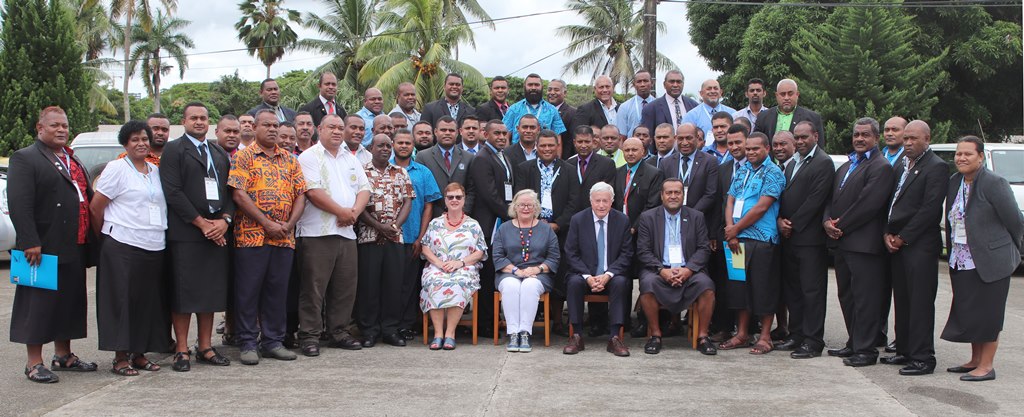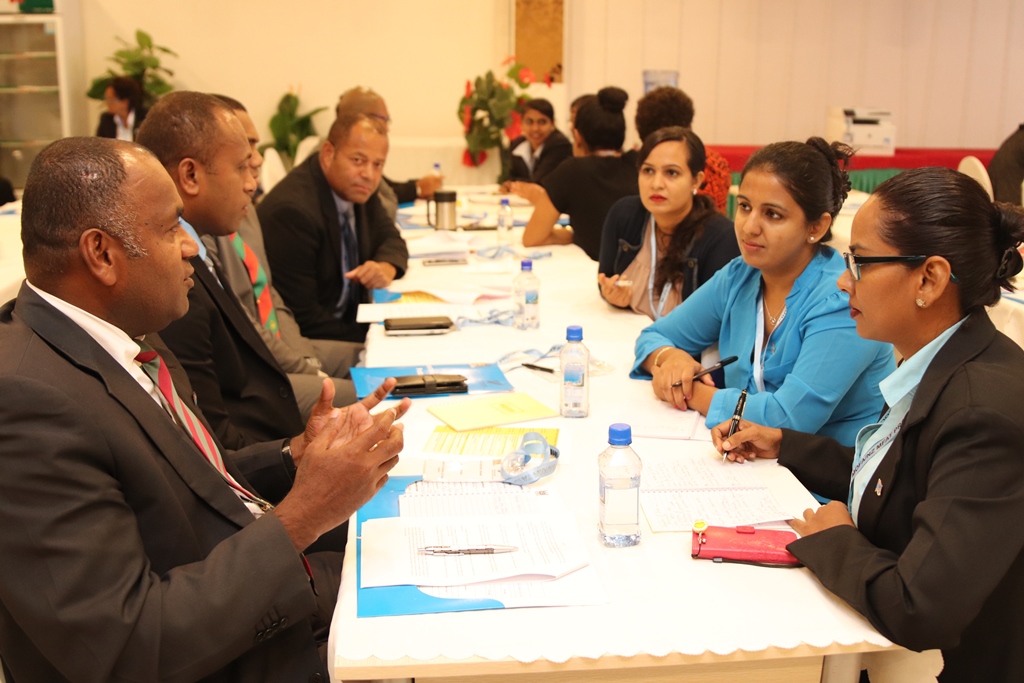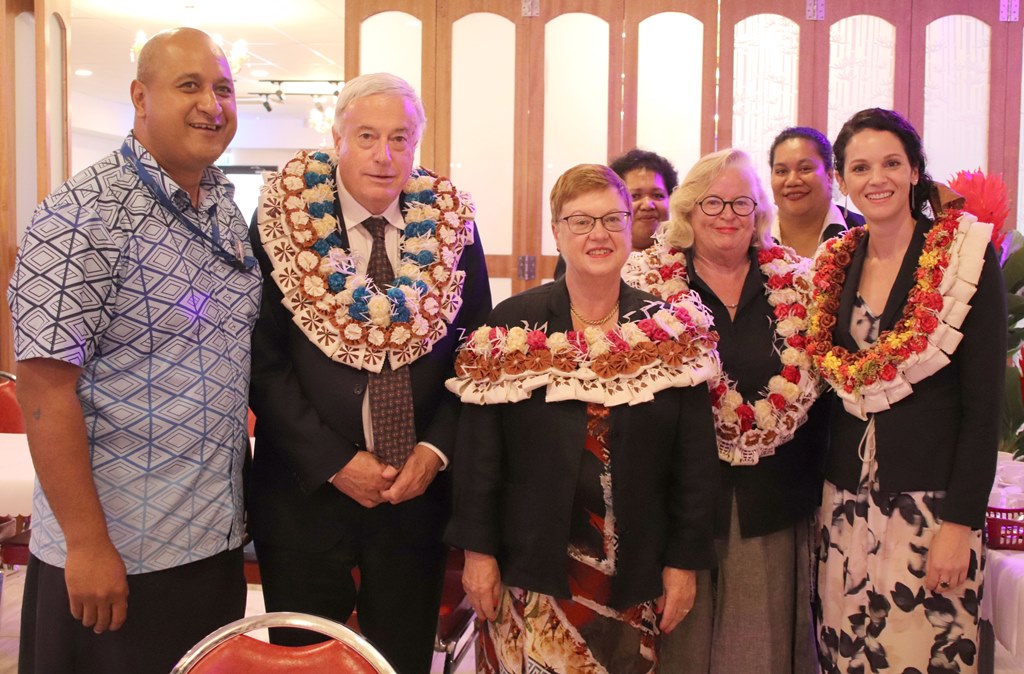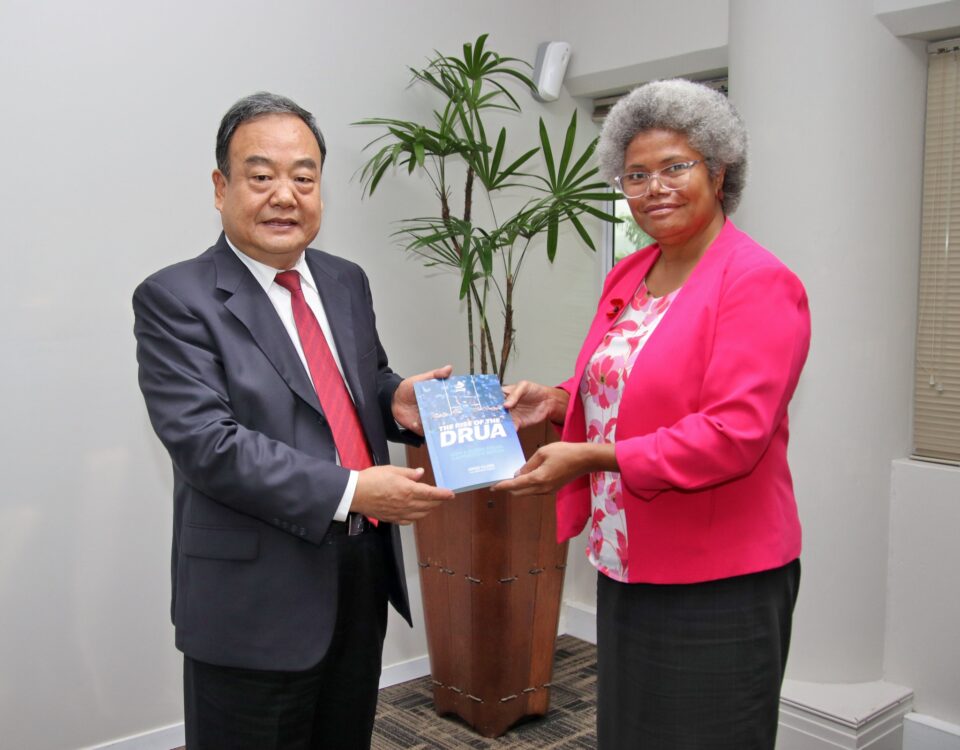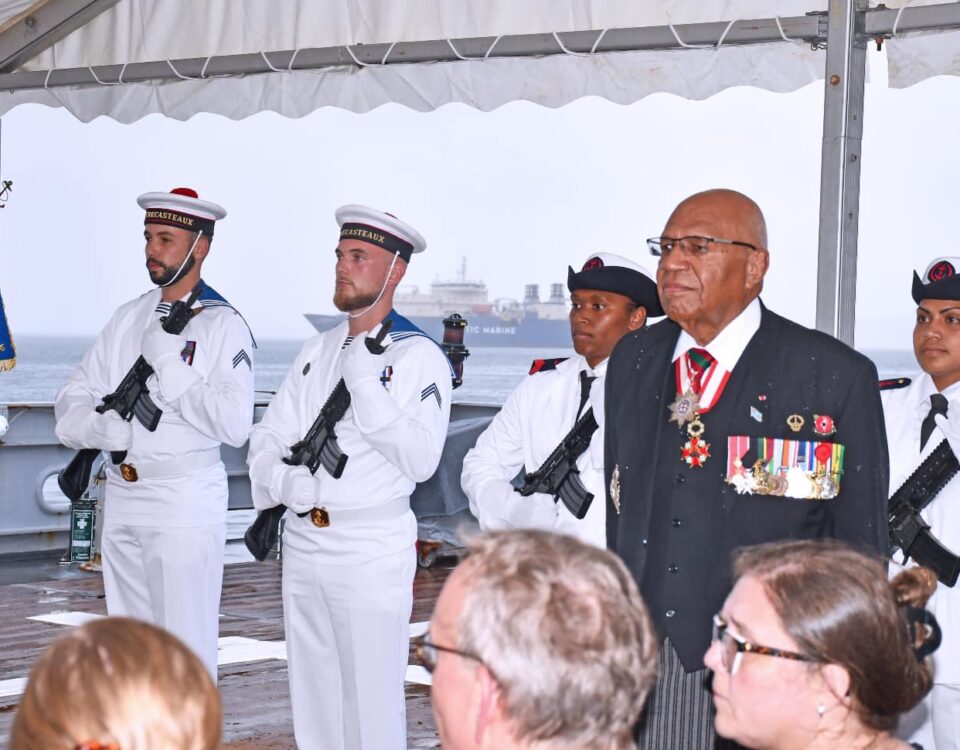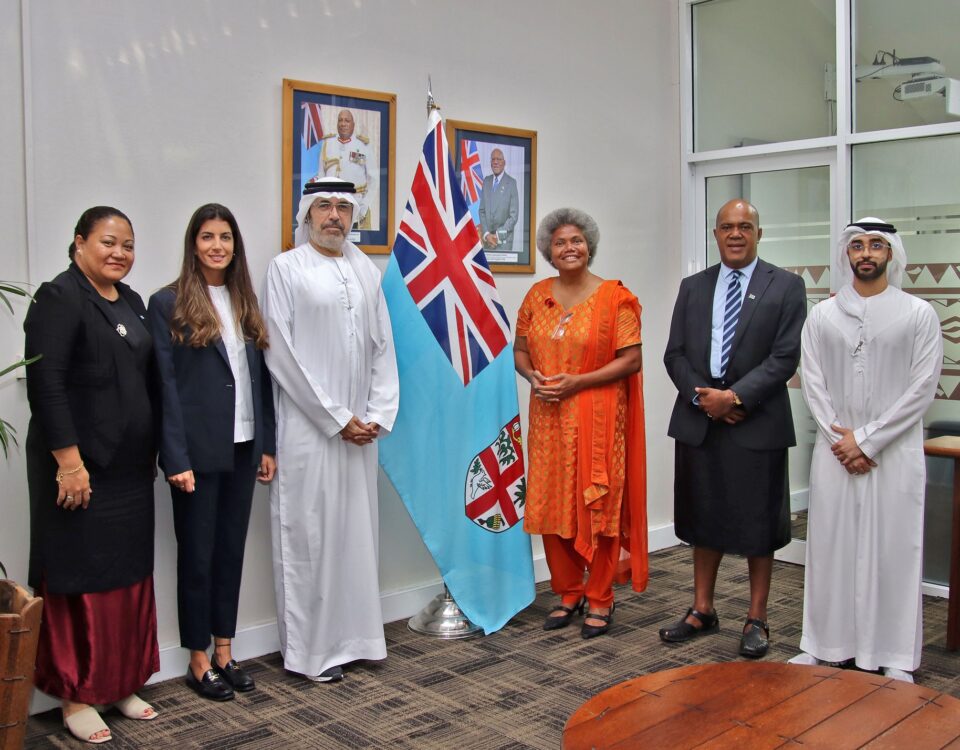
Collaboration yields benefits for the needy in Fiji
15/02/2019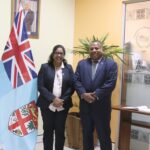
UN High Commissioner for Human Rights in the Pacific Rep pays courtesy call on Fiji’s Foreign Minister
22/02/2019Published On: 18/02/2019
The Fijian Government’s strategic foreign policy imperatives are to continue to boost Fiji’s diplomatic relations and visibility regionally and globally. One of the key strategies employed to achieve this is through the up-skilling of civil servants through training in protocol, etiquette and planning for high level and state visits.
As such the Ministry of Foreign Affairs in partnership with the New Zealand Ministry of Foreign Affairs and Trade (NZMFAT) recently organized a series of training for Fijian civil servants in Protocol, High Level Visits Planning and VVIP Drivers Etiquette Training from the 29th January to 7th February in Suva. Through this partnership NZMFAT provided three former diplomats who are well recognized for their wealth of knowledge and experience in diplomacy. Professor Don MacKay, Ms Christina Eagan and Ms Vanessa Knippenberg-Donaghy facilitated the 9 days training program for over 100 officials from the government and non-government organisations.
Significantly, the training brought to light Fiji’s dynamic and progressive economic and political status to hosts such high level and historic visits, namely hosting the visit of the Duke and Duchess of Sussex, Prince Harry and Meghan Markle to Fiji last year and the recent visit by the Australian Prime Minister, Hon. Scott Morrison earlier this year.
Fiji has also made a mark at the global stage through its COP23 presidency in Bonn. Attaining such strong global voice is a reflection of Fiji’s unwavering commitment to not only advance its diplomatic relations globally, but to nurture universal peace and prosperity says the veteran and prominent diplomat Professor Don MacKay who has been the former New Zealand Permanent Representative (Ambassador) to United Nations in New York and Geneva.
Having served as the New Zealand High Commissioner to Fiji between 1991- 1995, Ambassador MacKay says that Fiji’s leadership role in championing important issues such as climate change and human rights is yielding positive accomplishments in enhanced socioeconomic collaborations, thereby escalating Fiji’s diplomatic relations to greater heights.
“Fiji has been extremely active internationally in terms of establishing strong leadership role in addressing important international issues ranging from climate change at COP23 and the hosting of Annual Meeting of the Asian Development Bank (ADB) later this year. It’s encouraging to see that Fiji has taken a lead role to work collaboratively with foreign countries to address issues of importance like climate change. We are very proud of the role that Fiji continues to have both regionally and internationally,” Mr MacKay elaborated.
He applauded Fiji’s ongoing efforts to provide capacity building platforms for relevant agencies who are involved in facilitating protocol services and high level visit program planning.
“The Protocol, High Level Visits Planning and VVIP Drivers Etiquette Training has been very interactive, it enabled the exchange of experiences and information on protocol services whilst preparing for high level and state visits. Indeed Fiji does it extremely well and other countries can learn lessons from Fiji in the way it collaboratively coordinates its diplomatic protocols.
“The international visits and distinguished visitors visit may look easy from outside but when you get involved in it you will get to see the huge amount of work that goes into actually pulling the plans altogether, enabling it to go smoothly and the easier the whole operation looks to the onlooker, you know there’s been an even greater amount of preparation and planning by the Ministries like Ministry of Foreign Affairs and the inter-agency members,” Mr MacKay explained.
Similarly, Ms. Halia Haddad, Deputy High Commissioner at the New Zealand High Commission commended Fiji for its growing international voice and prominence.
“As President of COP23 climate change negotiations, Fiji has shone a spotlight on the Pacific and the impact of climate change in this region, and it has ensured that the Pacific voice is heard on the international stage. In May, Fiji will be the first Pacific island country to host the ADB Annual meeting, with over 3000 delegates visiting Fiji, this will be another opportunity for Pacific stories to be heard by an international audience. These are just two of many examples of the ways in which Fiji is helping enhance global visibility and building coalitions in support of solutions for issues affecting this region.
“With this increased attention on Fiji and the Pacific, there is a need for more in-depth understanding of the diplomatic protocols and high level visit planning that underpins all such international engagements. Protocol makes the job of representing our nations easier, making our relationships and interactions across cultures more predictable by providing a basic framework to follow. We hope that the recent protocol training will also help bring New Zealand and Fiji closer together, making us better able to work together on both major visits and events, and in our day-to-day correspondence and interactions,” Ms Haddad elaborated.
Reflecting on the protocol training benefits, one of the participants, Ms Jannett Handyside, Executive Assistant at the Pacific Islands Forum Secretariat described the training sessions as informative and empowering.
“Protocol allows the processes to take place smoothly, paving the way for positive and productive dialogues. I recognize its significance, not only for maintaining strong diplomatic relations between countries, but for ensuring that key meetings and arrangements run smoothly and therefore achieve the important outcomes that they are designed for,” Ms Handyside said.
Expressing similar sentiments, Mr Lekima Babakobau, Administrative Officer at the Ministry of Defence and National Security said the training enabled the agencies to relook at the challenges and strategies to improve coordination of high level visits.
“The techniques of ensuring effective protocol as shared by Ambassador MacKay and the overall lessons learnt through this training has broadened our knowledge and strengthened the networking among agencies to enhance the planning and coordination of protocol services for future programs,” he said.
